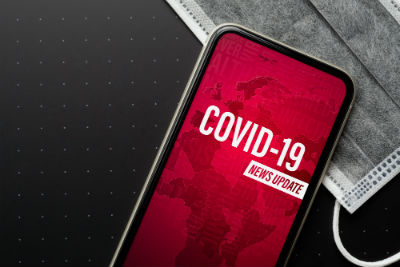By Charmaine Manansala
The Asian American, Native Hawaiian, and Pacific Islander (AANHPI) community includes many ethnicities and nationalities and it numbers roughly 20 million citizens in the United States, a population set to nearly double by 2050. At the same time the COVID-19 pandemic has caused an increase in anti-Asian hate crimes, we have also seen high COVID death rates amongst AANHPIs, with over 18,000 deaths as of March 2021.
There is no singular pandemic experience. Hawaiian Native and Pacific Islander communities, for example, have been especially hard-hit by COVID-19. According to AP M Research Lab, Pacific Islanders are 200 times more likely to die from coronavirus than their white counterparts, a similar rate to those seen in Black, Latino and Indigenous communities.

COVID-19 deaths in the AANHPI community have reminded us all of our mortality and demonstrated the importance of planning for the end of life. Many of us may have avoided these conversations with our loved ones for many different reasons, but more and more we are coming to appreciate the value of talking about death before a crisis arrives.
It is vital that we come together and have the difficult conversations that are necessary to avoid suffering at the end of life for ourselves and our loved ones. Just as there is no singular AANHPI experience, there is no singular answer to end-of-life care questions. For example, a person living with a terminal illness might make different healthcare choices than a healthy, young person. Some of us may value the quantity of life, while others value the quality of life.
While the pandemic has illuminated that death reaches all of us, it’s also shown that communities like Pacific Islanders and Native Hawaiians have vastly different end-of-life experiences due to disparities in care. Studies have shown that Asian Americans are less likely to fill out Advance Health Care Directives than their white counterparts, with completion rates at around 12%, while non-Hispanic white Americans fill out their Advance Directives at a rate of 26%-36%. Also, federal data demonstrates that only 28% of Asian Americans utilize their Medicare hospice benefits at the end of life, compared to 46% of the white population, 34% of African Americans, and 37% of Latino/Hispanic people. Without these supports in place, patients are more likely to be overtreated and less likely to die at home, which surveys show most of us want.
The national nonprofit Compassion & Choices provides free resources to plan for the end of life, no matter who you are. These resources are vital in starting the conversation with our loved ones about what we want at the end of life. Together, we can be prepared for an end of life that’s aligned with our values and priorities.
Charmaine Manansala is the chief advocacy officer for Compassion & Choices, the nation’s oldest, largest and most active nonprofit organization dedicated to improving and expanding healthcare options for the end of life. More information is available at: CompassionAndChoices.org. Credit to American Forum for sharing this article.










